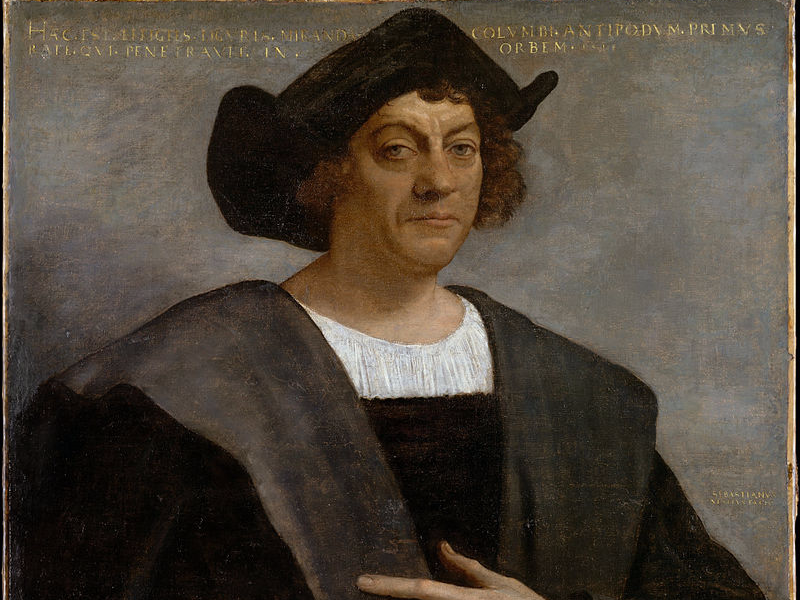On Christmas Day in 1492, the Santa Maria – one of the three ships that made up Christopher Columbus’s expedition to the Americas – ran aground off the coast of the island now known as Haiti.
Today, Columbus’s once-venerated, often fictitious legacy is beginning to resemble the fate of his wrecked flagship.
This year, as the Christian Science Monitor reported, more and more cities across the US are replacing Columbus Day with Indigenous Peoples’ Day, in order to celebrate the accomplishments of Native Americans.
This shift is happening as criticisms of both the colonization of the Americas and the explorer himself become more widespread. It’s not as if he wasn’t a controversial figure in his day. In an essay on Columbus Day, Norman Solomon cites Bartolome de las Casas, a Spanish priest who witnessed and chronicled the “killing, terrorizing, afflicting, and torturing [of] the native peoples” that occurred in the wake of Columbus’s arrival.
However, for decades, American schoolchildren have mostly been taught (the myth) that Columbus proved the world was round, the catchy (but incorrect) names of his three ships, and the date that he sailed the ocean blue.
I recently read William Bolitho's "Twelve Against the Gods," a largely forgotten 1929 book that's enjoyed a renaissance due to a shout out from Tesla and SpaceX CEO Elon Musk. Columbus was included as one of the dozen men and women profiled by Bolitho who defied tradition in some way.
I was curious to find out what an early 20th century journalist would make of Columbus. I expected an overtly positive reiteration of some of the popular falsehoods surrounding the explorer. Instead, Bolitho takes a somewhat more snarky, irreverent look at the historical figure - as he does with all of his subjects.
He allows that Columbus was a "pathological liar" for claiming noble ancestry and rips apart the widely held belief that his contemporaries were a bunch of "noodles and cowards bogged in the theory that the world was flat and the Atlantic infested with demons." He notes that Pope Pius II was known to claim that "virtually everyone is agreed that the world is round" in 1481, over a decade before the explorer's famous voyage.
Bolitho blames overly enthusiastic biographers for portraying the man as "the solitary captain of his age, the great navigator standing in lonely advance of the science, imagination, and daring of his times have missed the real glory."

So why does he include Columbus in his book at all? The author's reasoning is pretty weak. He argues that Columbus represents "the triumph of the Unqualified," as a gold-and-honors-obsessed crank that stole the "discovery" of the Americas away from better, more competent navigators.
At a certain point, however, Bolitho's adherence to a slightly updated "Great Man" theory of history takes over. He veers to a more conventional tack of praising Columbus as the true discoverer of America, regardless of his flaws: "America was discovered by a poet. Fate would not allow such a prize to go to anyone less, or better."
Bolitho doesn't completely omit the mass slaughter and enslavement of the indigenous people from his narrative. However, his description of the native people of the Caribbean as "delicate," "mild and good," "docile and easy to persuade" plays into the racist, patronizing belief that these indigenous people were childlike and primitive. He also explains away Columbus's often brutal actions by simply noting that true adventurers rarely are concerned with such things as justice and mercy.
So, while Bolitho does begin to pick at some of Columbus's flaws, he still strains the historical integrity of his profile to retain Columbus as the hero of the story - or, at least, an fascinating, colorful anti-hero.
Writing in 1929, he hadn't quite caught on to the question that people throughout the country are wrestling with today; that is, whether or not it's acceptable to venerate a myth.

